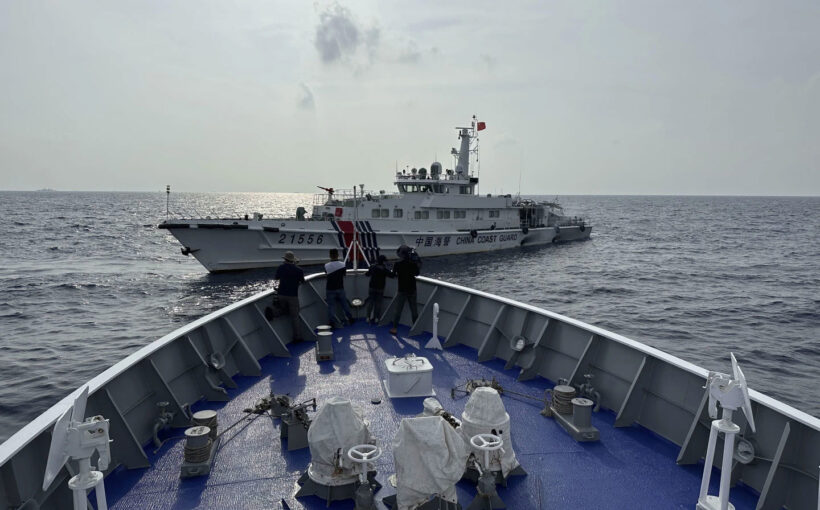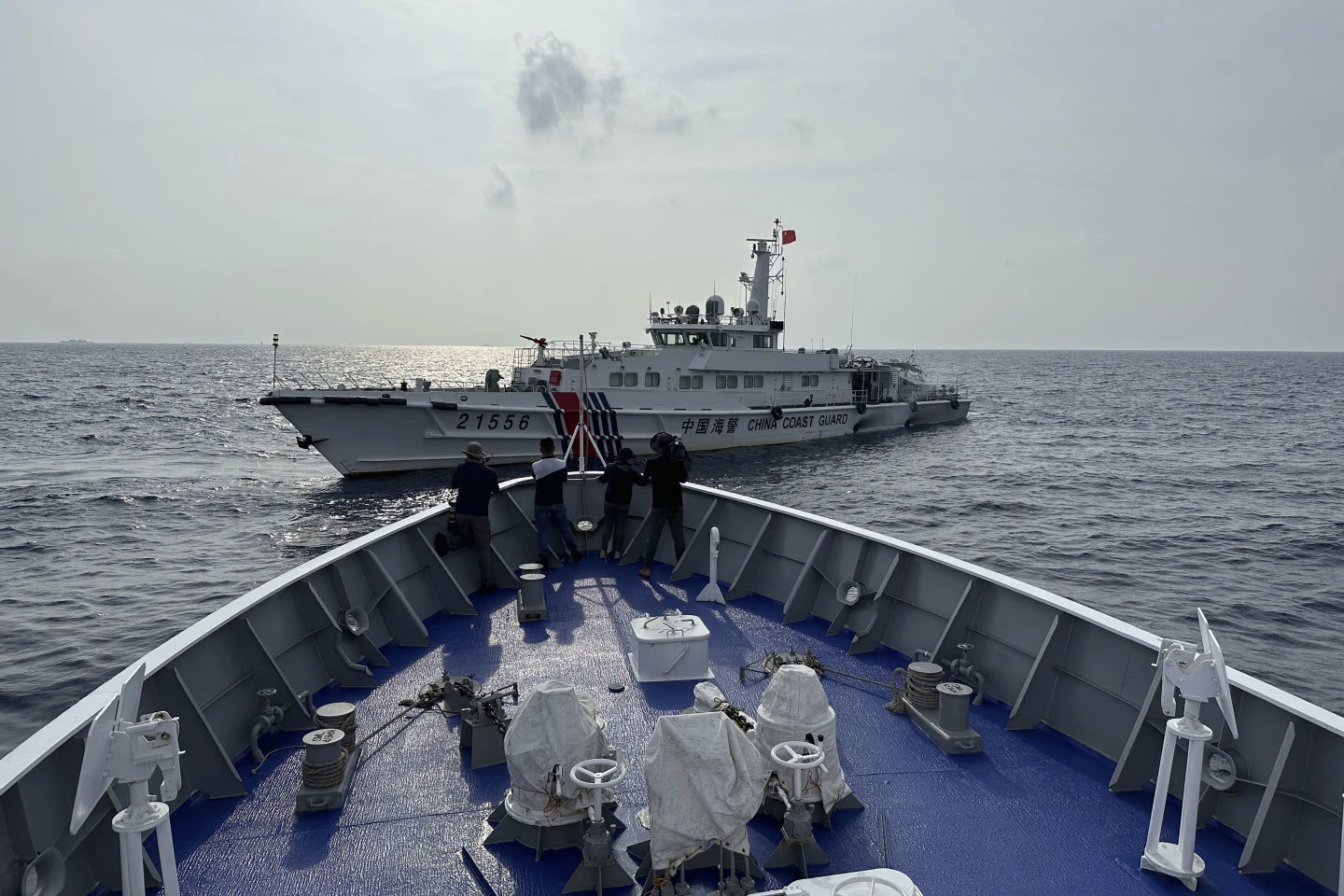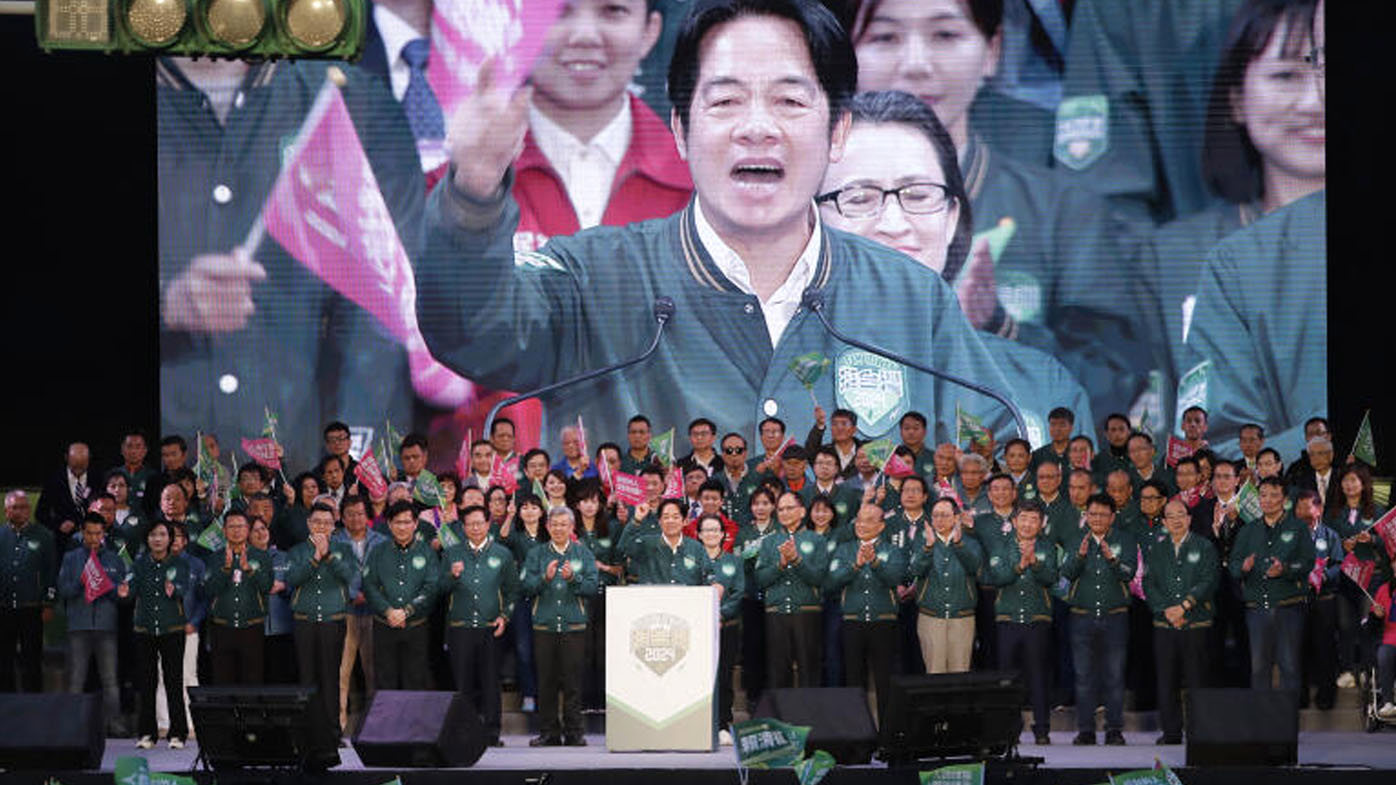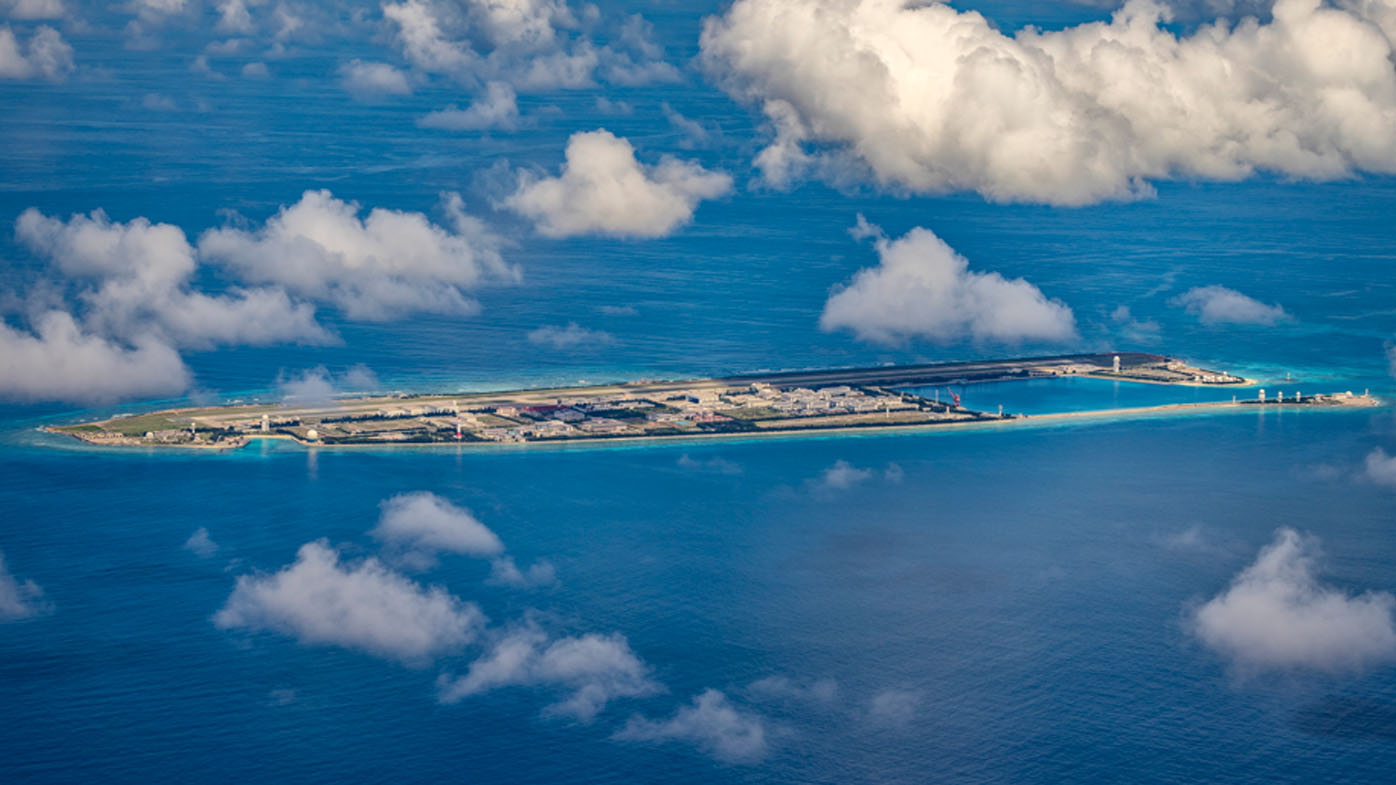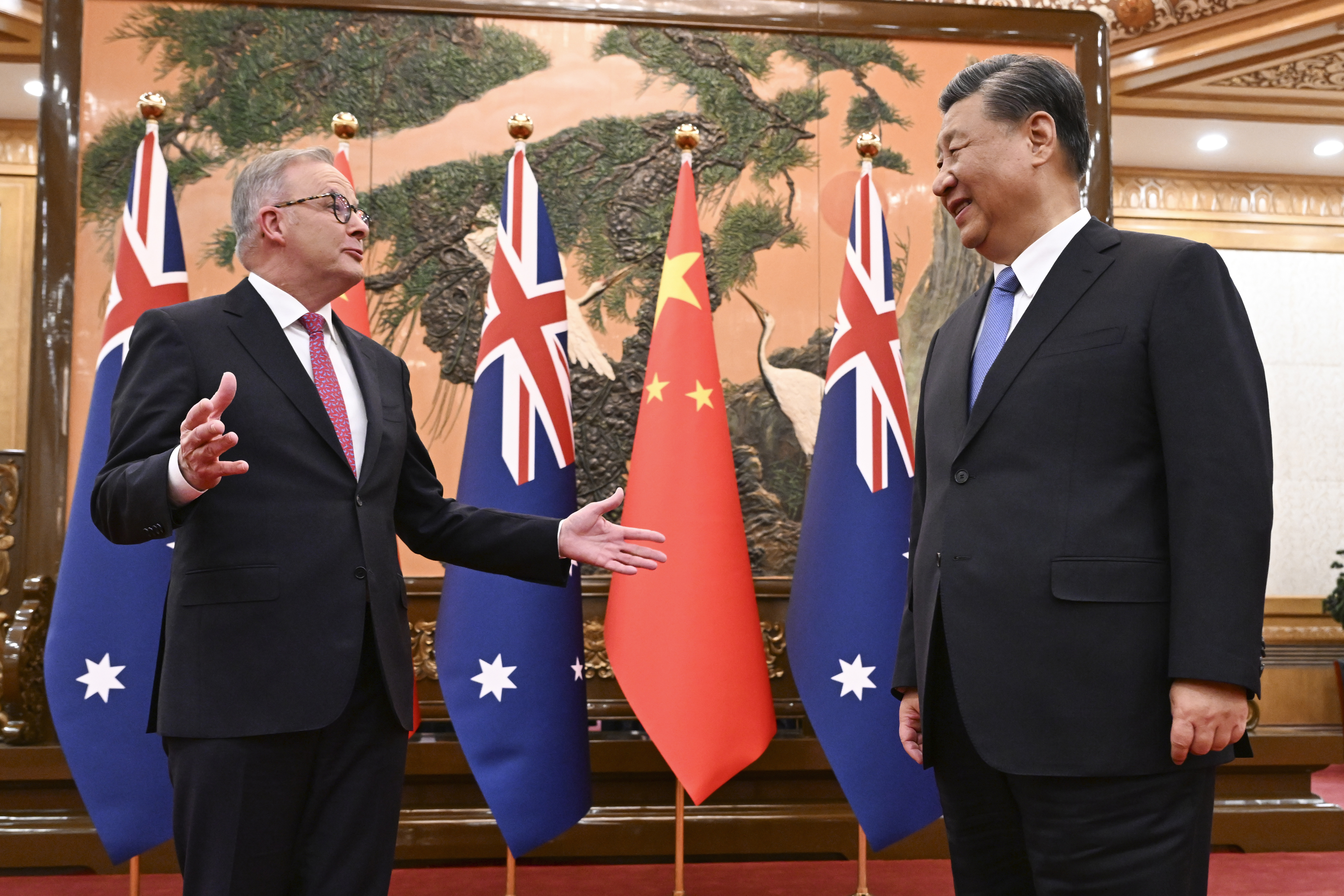The South China Sea is set continue looming as a potential flashpoint for conflict between the United States and China in 2024 during a year bookended by two key elections.
In mid January, the Taiwan election holds the prospect of reigniting tensions about the future of the self-governing island, while the prospect of Donald Trump returning as US president in November threatens to plunge already chilly Washington-Beijing relations into a deep freeze.
And for Australia, the next 12 months will mean more of juggling its valuable economic links with China, our biggest trading partner, while supporting long-time ally the US as it seeks to reassert its power in the region, according to one expert.
READ MORE: China blasts neighbour's vessel with water cannon
Security analyst Euan Graham, of the Australian Strategic Policy Institute think tank, spoke with 9news.com.au about what 2024 holds for geopolitics in the Asia Pacific.
Taiwan election to provoke response by Beijing
The outcome of the January 13 Taiwan election is set to have a major effect on relations between China and the US, which is bound by its own laws to provide the self-governing territory with the weapons it needs to defend itself and to treat all threats to the island as a "grave concern".
"China, like it has for a long time, will try to influence the outcome," Graham said.
Beijing has long claimed Taiwan as a breakaway part of the mainland and has refused to rule out force in reclaiming it.
The current Vice President of Taiwan, William Lai of the Democratic Progressive Party, whose party backs the status quo of de-facto independence, is tipped to win January's election, ensuring that tensions with China will likely remain high.
READ MORE: New Chinese base in Antarctica a 'wake-up call' for Australia
While China may renew its intense military exercises, involving its naval and air forces, around Taiwan in the leadup to the poll, Graham believes it will pull back from direct armed action.
"I don't think China will try military provocation intentionally with Taiwan because it knows it is very likely to draw an American response."
Disputed waters risk US-China clash
More concerning, Graham says, is the potential of clashes in the South China Sea between China and neighbours, such as the Philippines, provoking a military response by the US and Australia.
China claims virtually the entire strategic waterway, but the Philippines, Vietnam, Malaysia, Brunei and Taiwan have also pressed their separate claims.
For the past 20 years, China has occupied a number of obscure reefs and atolls far from its shoreline across the South China Sea, building up military installations, including runways and ports.
The three-million-square-kilometre waterway is vital to international trade, with an estimated third of global shipping worth trillions of dollars passing through each year.
The final weeks of 2023 saw heated stand-offs between Chinese and Philippines coastguard vessels, including a Chinese vessel using a water cannon against a Philippines re-supply ship.
"There's a high chance of bringing in the Americans through their alliance with the Philippines … it also directly affects Australia because Australia has strong interests in the South China Sea, has been increasing defence cooperation with the Philippines."
Graham says the incidents are a sobering reminder for the Australian government as it strives to stabilise Canberra-Beijing relations.
Prime Minister Anthony Albanese visited China in November 2023 to meet Chinese President Xi Jinping, in what was described as a diplomatic breakthrough.
There has also been an easing of Chinese trade sanctions on Australian exports throughout this year.
"The South China Sea incidents call into question the narrative about stabilisation in relations with China.
"I'm very skeptical given what we have seen unfolding in the East China Sea, across the Taiwan Sea and especially in the South China Sea, given what's happened with the Philippines over the last few months."
Trump return to White House?
During his US presidency from 2017 to 2021, Donald Trump took a hard line with China, slapping tariffs on Chinese imports and kicking off a costly trade war.
Trump today holds a strong lead among contenders for the 2024 Republican presidential ticket and is likely to continue his style of unilateral foreign policy if re-elected to the White House late next year.
And the fallout from a second Trump presidency will be felt by Australia and other US allies, says Graham.
'It (Trump presidency) will be deeply disruptive to any alliance dynamic between the US, Japan and Korea – and even if Australia manages to weather the storm, it's going to take the hit from bigger more important relationships to the US."
Other contenders for the Republican presidential nomination have also expressed their support for a harder line on Beijing, making it less likely there will be any moderating voices in a second Trump administration.
Balancing act for Australia
While China helps drive the Australian economy by consuming nearly a third of our exports, Canberra remains welded to its traditional military alliance with Washington.
It leaves the Australian government to "thread the needle" between the economic and strategic priorities in its relations with China, says Graham.
But growing assertiveness by Beijing in the South China Sea means Australia will not be left untouched by US-Chinese competition in the region.
"Australia will try and trade with China for as long as it can … but that does not mean economic cooperation is the centre of gravity in Australia-China relations … the warnings of all these incidents show that geo-politically under the current leadership in China it's about geo-political competition and that's going to fundamentally unravel any attempts to stabilise relations, whatever the intentions from Canberra."
